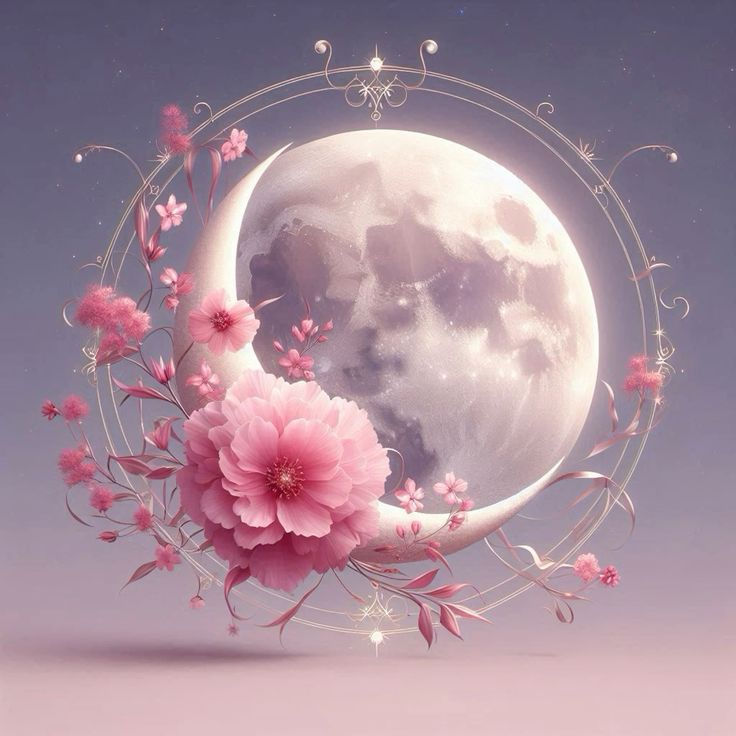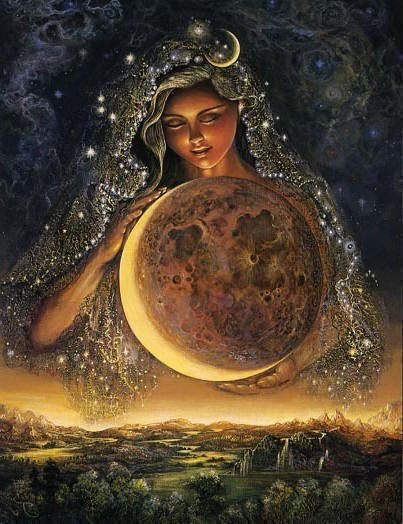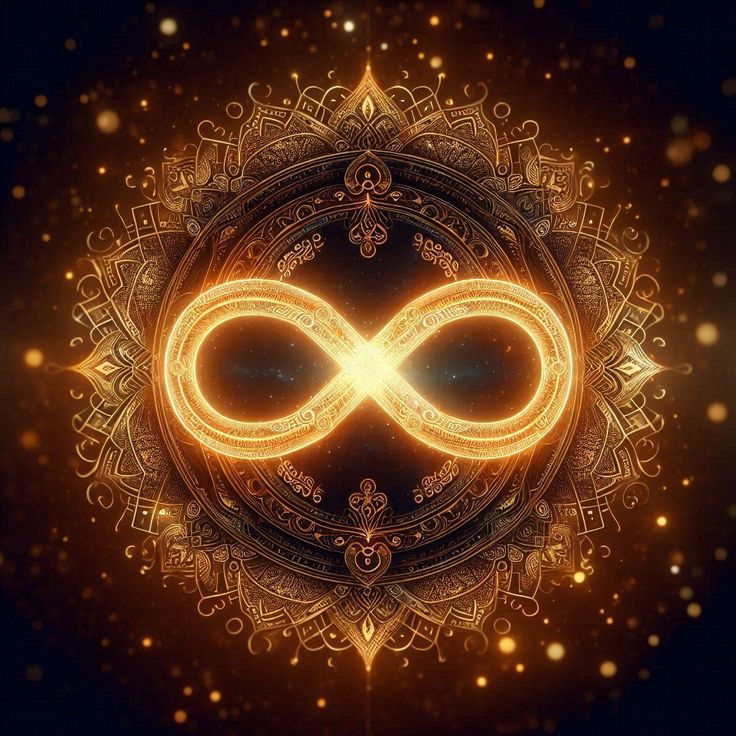Moon in Cancer and the Cycles of Emotional Memory
- Imaginarium Magazine

- Jul 20, 2025
- 12 min read

The Moon in astrology reveals our inner world — the part of us that feels, remembers, and reacts. It governs our emotional needs, instincts, and sense of belonging. Where the Sun describes our outward personality, the Moon whispers of our hidden heart — what comforts us, what wounds us, and how we nurture ourselves and others.
In this blog series, we'll journey through the Moon in each zodiac sign — exploring how lunar energy expresses itself differently based on its sign placement. Whether you're a fiery Aries Moon or a dreamy Pisces Moon, your lunar signature offers profound insight into your emotional makeup, childhood patterns, relationship needs, and spiritual path.
We’ll explore:
How the Moon functions in each sign
The differences between men and women with this placement
The role of the Moon in romantic relationships and parenting
How the Moon is affected by supportive aspects or difficult ones
What it’s like to love — or be loved by — someone with this Moon
Whether you're reading for yourself or someone close to you, these lunar insights can help you move beyond emotional reactivity and into emotional wisdom — the Moon’s highest calling.
We will start with the Moon in Cancer as it is the sign the Moon rules and also the placement where the Moon feels most comfortable.
When the Moon resides in Cancer, it returns home. This placement offers one of the purest expressions of lunar energy — a tide of intuition, emotional depth, and instinctual nurturing. Whether you're a Moon-in-Cancer soul, in love with one, or the parent of one, this Moon teaches us about the power of emotional presence, the sacredness of home, and the vulnerability hidden beneath a soft shell.

The Moon’s Temple: Cancer and the Emotional Body
Cancer is ruled by the Moon, making this placement deeply instinctual. Emotions are not just feelings here — they are a language, a weather system, and a sacred compass. People with this placement are often gifted with empathy, imagination, and the uncanny ability to feel others’ needs before they're spoken. But this sensitivity can become a double-edged sword when not anchored in emotional maturity.
Cancer is a water sign and here lunar qualities are magnified. The Cancer Moon feels everything — not just their own emotions, but those of the people around them, the atmosphere of a room, even the echo of the past.
Like the crab, they carry their home within — a mix of inner world and outer shell. Their sensitivity can make them seem withdrawn or guarded, but under that protective armour lies a deeply loyal, loving, and emotionally attuned being.
Women with Moon in Cancer
The Archetypal Mother Within
The Priestess of the Hearth
A woman with the Moon in Cancer embodies the essence of the lunar feminine — receptive, deeply feeling, and nurturing. She may feel pulled to mother not only her children (if she has them), but friends, partners, animals, and even creative projects.
She instinctively knows how to hold emotional space, often offering warmth, comfort, and safety to others. But she must learn to extend the same tenderness to herself.
In Balance:
Empathetic, intuitive, emotionally creative
Emotionally devoted in love and friendship
Creates sacred space in her home and relationships
Out of Balance:
Overidentifies with the caretaker role
Easily hurt, may withdraw or silently punish
Can be co-dependent or unable to detach from the past
For women, the Cancer Moon often manifests as a deep connection to the archetype of the Mother, whether they have children or not. These are the women who nourish, protect, and intuit. They may find comfort in homemaking, memory-keeping, or creating emotional sanctuaries.
Strengths:
Nurturing and emotionally available: Individuals with a nurturing disposition often possess a remarkable ability to provide emotional support and comfort to those around them. They are typically attuned to the feelings and needs of others, which allows them to create a safe and welcoming environment. This emotional availability means they are often the go-to person for friends and family seeking solace or guidance in times of distress. Their empathetic nature fosters deep connections, making them invaluable in both personal and professional relationships.
Strong memory and family loyalty: A strong sense of loyalty, particularly towards family, is a hallmark of these individuals. They often have a remarkable capacity to remember important dates, events, and details that others might overlook, which reflects their deep commitment to their loved ones. This loyalty not only strengthens familial bonds but also ensures that traditions and shared histories are preserved and celebrated. Their ability to recall significant moments can serve as a foundation for family unity, reinforcing ties that might otherwise weaken over time.
Deep intuition and caring instincts: Those who embody deep intuition often have an innate ability to sense the emotions and needs of others without the necessity for verbal communication. This intuitive nature is complemented by their caring instincts, which drive them to act in ways that prioritize the well-being of those around them. They can often anticipate problems before they arise and provide solutions that are both thoughtful and effective. This combination of intuition and care not only enhances their relationships but also positions them as natural leaders and caregivers in various contexts.

Challenges:
Prone to mood swings or emotional withdrawal: Despite their nurturing qualities, these individuals may experience significant emotional fluctuations, which can lead to mood swings that affect their relationships. When overwhelmed, they might withdraw emotionally, creating distance between themselves and their loved ones. This withdrawal can be confusing for those around them, as it contradicts their otherwise supportive nature. Learning to manage these emotional ups and downs is crucial for maintaining healthy connections and ensuring that their nurturing instincts can shine through consistently.
Difficulty letting go of the past: A strong attachment to memories and experiences can sometimes hinder their ability to move forward. Individuals who struggle with letting go of the past may find themselves ruminating on previous events, which can lead to feelings of regret or sadness. This tendency can affect their current relationships and overall emotional health, as they may become trapped in a cycle of nostalgia that prevents them from fully engaging with the present. Developing strategies to release these emotional burdens is essential for personal growth and the cultivation of healthier future experiences.
Can become overprotective or co-dependent: Their deep care for others can sometimes manifest as overprotectiveness, where they may feel compelled to shield their loved ones from any potential harm or discomfort. While this instinct comes from a place of love, it can inadvertently stifle the independence of those they care for. Additionally, there is a risk of developing co-dependent relationships, where their emotional well-being becomes overly tied to the needs and actions of others. Recognizing the importance of balance and fostering independence in relationships is vital for both their well-being and that of their loved ones.
With Supportive Aspects (trines/sextiles):
Emotionally balanced and expressive
Natural healers, artists, or counselors
Harmonious in love, grounded in self-worth
With Afflictions (squares/oppositions):
Emotional reactivity or self-protective walls
Tendency to cling or smother loved ones
May harbour unhealed wounds from childhood
Men with Moon in Cancer
The Gentle Warrior of the Heart/ The Dreamer-Protector
A man with this Moon carries the soul of the nurturer — often hidden under a shell of stoicism or defensiveness. He is deeply impacted by his early family environment, especially the mother, and often seeks emotional safety before revealing his soft centre.
He may crave a partner who reminds him of the nurturing presence he once knew — or wished he had. In love, he’s loyal and sentimental, though he may struggle with emotional vulnerability if it was discouraged in his upbringing.
For men, the Cancer Moon may be more complex — it expresses emotions in a society that doesn’t always encourage male vulnerability. These men often carry the soul of a protector, caregiver, or intuitive partner, but may struggle with emotional exposure.
Strengths:
Individuals who embody romantic qualities often possess a deep appreciation for love and intimacy, which allows them to create lasting and meaningful connections with their partners. Their loyalty is not merely a trait; it is a cornerstone of their relationships, as they are dedicated to standing by their loved ones through thick and thin. This unwavering devotion fosters a sense of security and trust, making them reliable companions. Additionally, their emotional sensitivity enables them to empathize with others, allowing them to understand and respond to the feelings of those around them in a compassionate and nurturing manner.
Strong family values are another hallmark of these individuals, as they prioritize familial bonds and often see family as a fundamental aspect of their identity. This devotion to family manifests in various ways, such as maintaining close relationships with relatives, participating in family traditions, and providing support during challenging times. Their commitment to family is not just about obligation; it is rooted in a genuine desire to foster love and unity within their household. This dedication can also extend to creating a nurturing environment for future generations, emphasizing the importance of values, respect, and care.
When it comes to children and animals, these individuals exhibit a gentle and nurturing demeanour that reflects their compassionate nature. Their patience and kindness make them particularly adept at forming bonds with younger individuals and pets alike. They often take the time to understand the needs and emotions of these vulnerable beings, providing comfort and support that fosters a sense of safety and trust. This gentleness not only enriches the lives of children and animals but also brings joy and fulfillment to the individuals themselves, as they find purpose in caring for those who rely on them.
Challenges:
Despite their many strengths, individuals with these traits may sometimes come across as moody or passive-aggressive, particularly when they are feeling overwhelmed or misunderstood. This tendency can manifest as a withdrawal from social interactions, leading others to perceive them as distant or unapproachable. Their emotional depth, while a strength, can also make them vulnerable to fluctuations in mood, which can create challenges in maintaining consistent relationships. This behavior may leave friends and loved ones uncertain about how to engage with them, potentially leading to misunderstandings.
Another challenge that these individuals may face is emotional dependency, particularly on their mother or partner. This reliance can stem from their strong attachment to loved ones and a desire for emotional support. However, it can also lead to difficulties in establishing independence and self-sufficiency. They may struggle to assert their own needs and desires, often prioritizing the feelings of others over their own. This dependency can create an imbalance in relationships, where they may feel overwhelmed by the need for validation or reassurance from those they depend on.
While they may prefer to avoid conflict to maintain harmony, this tendency can lead to unresolved issues and pent-up frustration. Instead of addressing problems directly, they might express their hurt feelings through silence or passive-aggressive behaviors, which can create a cycle of miscommunication and resentment. Their reluctance to confront issues head-on may stem from a fear of rejection or a desire to keep the peace, but this approach often results in emotional strain, both for themselves and for those around them. Learning to communicate openly and effectively about their feelings could help mitigate these challenges and foster healthier relationships.
With Supportive Aspects:
Grounded emotional intelligence
Deep creativity, imagination, and empathy
Makes a devoted partner and nurturing father
With Afflictions:
Issues with maternal relationships
Difficulty processing or expressing vulnerability
May attract partners who "mother" them — or rebel against such figures

The Mother of a Cancer Moon Son
A Cancer Moon man’s emotional DNA is deeply woven with his relationship to his mother. She is the prototype for all future relationships — and her presence (or absence) becomes a lifelong influence.
If the mother is nurturing, warm, and consistent, she becomes his emotional anchor. If she is cold, critical, or unavailable, he may struggle with insecurity, emotional neediness, or avoidance.
Being the Wife/ Partner of a Man with Moon in Cancer
In relationships, these men seek emotional sanctuary. They want a partner who feels like home — someone who can meet them in their inner world, share feelings, and build an emotional life together.
But beware: they may unconsciously expect their partner to play the role of the mother, especially if childhood wounds remain unhealed. A partner who can love without over-functioning is key.
What he needs from his partner:
Emotional safety and non-judgment
Gentle encouragement to open up
Respect for his need to retreat and replenish
Emotional Wisdom in Motion
Moon in Cancer reminds us that emotions are not weaknesses — they are wisdom in motion. Whether male or female, supported or challenged, this Moon calls for self-trust, emotional honesty, and the courage to feel deeply in a world that often prefers the surface.
In its highest expression, Moon in Cancer is the emotional alchemist: turning vulnerability into strength, memory into meaning, and care into the most powerful form of magic.
Ancestral Threads and Lunar Legacy
Cancer rules ancestry, roots, and memory — those with this Moon often carry generational emotional patterns, including inherited trauma. They may have a deep psychic connection to the maternal line, or feel compelled to break emotional cycles passed down through the family.
This Moon’s higher path involves transforming emotional inheritance into emotional wisdom — a kind of soul-level motherhood, whether literal or symbolic.
The Shadow of Moon in Cancer: Emotional Enmeshment, Control & Guilt
Every light casts a shadow — and the Cancer Moon, radiant with care and emotional wisdom, is no exception. When wounded, insecure, or over-identified with the past, this Moon can express its energy in ways that undermine emotional freedom, both for themselves and others.
Here’s how the shadow of this placement may appear:
Emotional Clinging & Enmeshment
Cancer Moons have a deep fear of abandonment, especially if their early caregiving was inconsistent. In shadow, this can lead to:
Clinging to relationships that no longer serve them
Fusion with partners or children, struggling to recognize where “I” ends and “You” begins
Keeping others emotionally indebted through caretaking or guilt
“I do everything for you — how could you leave me?”
Guilt as a Tool or Trap
Guilt can become a major emotional currency for the Cancer Moon. Whether turned inward or outward, guilt is used to:
Control behavior through emotional pressure
Repress personal desires in favor of keeping the peace
Stay in victim-consciousness, unable to forgive or move forward
“If I’m hurting, it must be someone’s fault.”
Haunting the Past
This Moon often carries powerful emotional memories — but in shadow, memory becomes obsession:
Reliving past wounds or betrayals
Idealizing a lost home, lover, or childhood
Using the past as a reason not to evolve
“Things will never be that good again... or that safe.”
Passive-Aggressiveness & Emotional Withholding
Rather than confronting conflict directly, the Cancer Moon shadow may:
Withdraw love or warmth as punishment
Use silence, tears, or martyrdom to express discontent
Say “I’m fine” while seething with unspoken hurt
“You should just know what I need.”
Controlling Through Care
The need to nurture can become a form of emotional control:
Making others dependent on their care
“Fixing” people instead of letting them grow
Keeping loved ones close by fostering emotional dependence
“If you need me, you’ll never leave.”
Healing the Shadow
The shadow of Moon in Cancer often stems from a childhood wound around safety, care, or emotional neglect. Healing requires:
Learning to self-soothe instead of expecting others to do it
Cultivating emotional boundaries — giving without losing self
Releasing the past and living in the emotional present
Recognizing that true care is free, not conditional

The Moon in Cancer holds tremendous potential for emotional depth, ancestral healing, and soul-level compassion. But only when it dares to move beyond protection and into presence.
Its shadow invites the Cancer Moon to mother itself — to hold its own heart with the same tenderness it gives to others, and to understand that emotional safety begins within.
The Moon and the Way We Were Fed
The Moon in astrology describes how we were fed as children — not only through food, but through touch, voice, safety, and presence. It tells the story of our earliest emotional environment, the one we absorbed before we had words or choices. When we were unformed, unguarded, and utterly dependent, we imprinted the emotional field of the mother — or the primary nurturer — into our body and soul.
In Cancer, the Moon speaks loudest.
The Mother as Atmosphere
We didn’t just receive care — we breathed in the emotional state of our mother. Her voice, tension, gaze, and rhythm shaped our nervous system. Her consistency, warmth, and availability — or lack of them — taught us whether the world was safe to open to or dangerous to protect against.
Moon in Cancer children may have received abundant emotional nourishment — or been painfully aware when it was absent.
They remember it in their bones, and will spend their lives trying to recreate, repair, or protect that early emotional ecosystem.
Emotional Safety and the Maternal Imprint
For the Moon in Cancer person, the emotional climate of early life becomes the emotional baseline for adulthood. The mother (or mothering figure) is experienced as the first universe, and she transmits certain emotional codes:
“Is it safe to cry?”
“Will someone notice when I’m scared?”
“Am I allowed to need others?”
“What do I have to do to be held?”
These codes don’t just fade — they repeat in adult relationships, especially under stress. The partner, child, or even the home itself may become a canvas onto which these early experiences are projected.
Cancer Moon and the Longing to Re-Mother
This Moon often holds an unconscious longing to re-live or re-write those early feeding years — the soft, sacred time when they were held, fed, and known. When unmet, this longing can turn into:
Clinging to others for emotional reassurance
Emotional self-denial in the name of care-taking
Fear of loss, betrayal, or emotional exposure
Idealization of the mother — or resentment if she failed to protect
Healing begins when they realize: I can now feed myself. I can choose emotional safety. I can become the mother I needed.
Anastasia July 2025



Comments